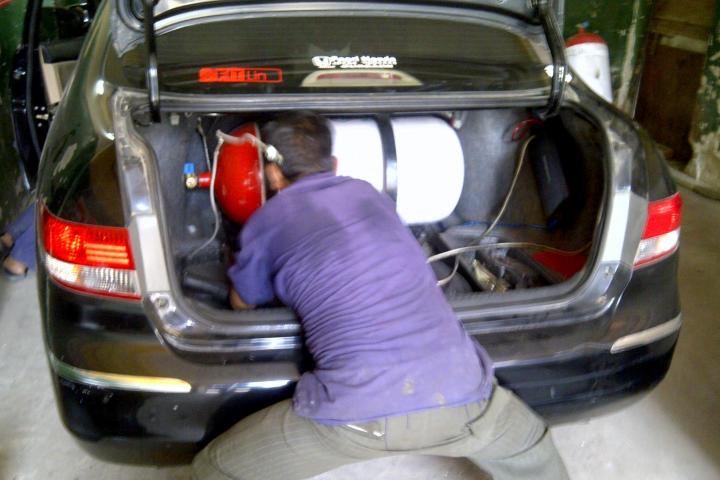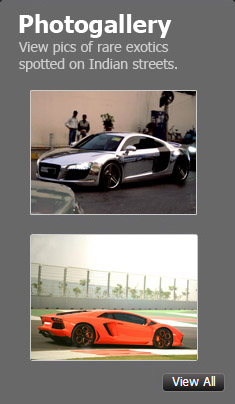News
6 key points about CNG cars to know before doing a CNG conversion
I own a used Maruti SX4 which I have been running on CNG for the last 50,000 km with zero issues and no power drop.
BHPian moto_rrevver recently shared this with other enthusiasts.
Busting all the myths regarding CNG conversion
Hello Bhpians,
If you are not interested in a long reading session and just want the summary of the post, just go through the points in bold.
CNG conversion is 100% safe if done by a reputed and licensed dealer.
Introduction
First of all, I would like to state that I am a person who follows the user manual of anything religiously, not only cars and bikes, but literally every piece of equipment. If I had to opt for a new vehicle, I would definitely go for factory-fitted CNG, as what needs to be done is clearly mentioned in the user manual and I don't need to worry about the parts and replacement intervals.
But this is not the case, as I own a pre-owned SX4 petrol VXi 2008 and as soon as I bought it with 76000 km on the ODO, I did the CNG conversion after driving it for merely 1000 km and since then, I have driven it around 50k km on CNG with 0 issues and no power drop.
I see myself as a technically sound person and have been doing DIYs since my childhood, I am not scared of reading long research papers containing various technical terms, and I do a lot of reading in the fields of my interest including Automobile, so please trust me as everything I am writing is well researched and I personally practice the same.
Choosing a car
If getting a new vehicle and your requirement is for CNG, please go for factory-fitted CNG cars. If you are in the market for a pre-owned CNG car, get a factory-fitted pre-owned, less driven CNG car. If you are planning to buy a pre-owned car with a retrofitted CNG kit, stop then and there, it is a very bad idea trust me. If you are planning to buy a pre-owned petrol car and want to get CNG retrofitted, google the models which are CNG friendly, reliable and spare parts availability is not an issue.
After buying, drive the car at least for 2K km to test engine durability, before CNG conversion, as CNG conversion is expensive and if the engine is already in bad condition there is no point spending extra on a CNG kit. If you are planning to convert your already owned petrol car due to high fuel costs these days, please do your research and ask a few people owning the same model with CNG conversion, whether it is reliable after CNG conversion or not, if not, please drop the idea.
Myths and reality
1. Reduce oil change intervals
Please use fully synthetic oil from any reputed manufacturer and use the same grade as mentioned in the manual, change every 8K km.
It is kind of true but not only for CNG, even for petrol and diesel vehicles. Get regular oil changes done at every 8K km, this will improve the longevity of the engine, this has nothing to do with CNG conversion, some might say that CNG burns hotter than petrol, which is true, but diesel also runs hotter, and almost all the engine oils available in market are compatible with all 3 fuel types, so they are designed to withstand heat, trust the engineers and don't worry about it.
2. Replacing the air filter at every periodic service
Clean every 4K km, replace every 16K km, and use OEM filters only.
If you ask any CNG fitment guy, they will suggest you to replace it at every service, simply not required. Please check any user manual of any factory fitter CNG vehicle, in most cases you will find the replacement interval the same as the pure petrol model of the same car. The important thing to note here is that it should be clean and the car should breathe without any issues.
My suggestion - If it is cloth-based, clean it at your home gently with soap water every 4k km, and if it is paper-based, get it air pressure cleaned at any mechanic shop, it will not take more than 10 min and 50 bucks. Replace it at every 2nd oil change interval, which is 16K km.
3. Replacing spark plugs at every periodic service and adjusting gaps
Use NGK plugs, don't go for iridium, platinum or silver plugs, change every 16K km, take the temperature rating seriously.
Please don't waste your money on expensive spark plugs and please don't replace them before 16K km, the whole purpose of driving a CNG vehicle is reducing running costs, so please use it at least for 2 oil change cycles.
Take the heat range seriously, eg.- If the model name is BKR6E, '6' is the temperature reading, don't go for 5, don't go for 7, the shop owner may argue this point, simply don't listen, use the model specified in your user manual. No need to adjust the gap of a perfectly new spark plug, don't worry if the mechanic tells you that your ignition coil will burn, it will not burn please trust me, stick to the gap suggested in your manual.
4. Low pressure filter
Please use it, it costs 500 bucks (Lovato low-pressure filter) and keep the replacement interval at 16K km. If it is useless why factory factory-fitted CNG cars come fitted with these filters? Please ask this to yourself.
This is a controversial topic, so please listen to me before making any opinion. Compressor oil in CNG pumps can enter your CNG tank if the CNG pump is not maintained, and if compressor oil is in your tank, it will eventually enter your engine through the injectors, the oil entering your engine is not a big deal, as it will burn in the combustion process and it will be very negligible in quantity, but the injectors will clog eventually, which will reduce the power and eventually fail (When people say CNG engine loose power after few thousand kilometers, this is what actually happens and this is preventable, just use the low pressure filter).
The CNG injectors are not cleanable like petrol injectors, you will have to change the injector rail as it is not sold separately, and it is expensive. If you are convinced that this is a waste of money, just think of it as insurance for your injectors and get it fitted, as it is not going to harm anything.
5. Driving habits
If you are reading this thread, your sole purpose is to reduce the running cost, so please don't drive like lunatics, driving at a higher RPM will increase your running cost drastically, keep the RPM low, drive sanely in the city, on highways don't go beyond 90kmph. The engine of your car is designed to run with petrol and trying to run it using CNG is a big change for the engine.
Let me explain this in simple words, just imagine your petrol car is tested to run at 5000 RPM continuously for several hours, without any issues, the engine internals and cooling system is designed for that much load and temperature and let the temperature be "X degrees", if you drive the car on CNG at same 5000 RPM the temperature might go beyond "X degrees" which is not good for the engine components and cooling system, but if you will run the engine at 2500 to 3000 RPM on CNG the temperature will not exceed "X degrees" and this will increase the life of your engine significantly.
6. Starting the car on CNG
Cold start the car on petrol and drive it for at least 2 km before switching to CNG mode. Also, try to drive on petrol for 2 km before switching off the engine for long intervals. It is not a myth, it is important for the longevity of your engine valves.
Check out BHPian comments for more insights and information.










.jpg)







